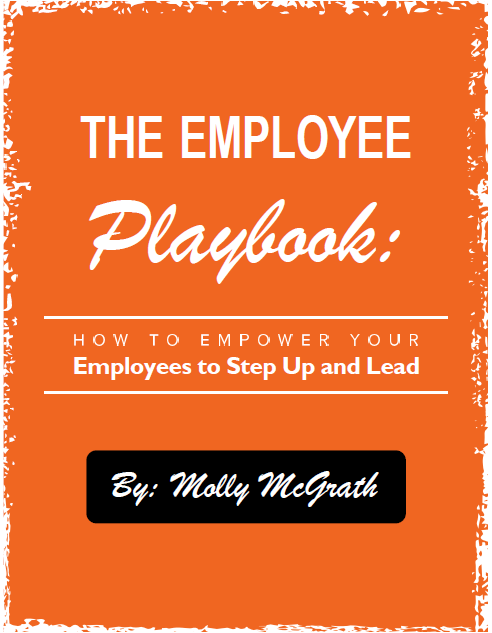
Procrastination. We all do it.
As a busy attorney, you tend with looming client deadlines (and demands), a line of staff outside your door delegating back up to you, and a family waiting at home for you to show up before 6 pm. Understandably, you need your time to space out and unplug. But is it worth it?
Getting stuck in a procrastination loop feels terrible. And the more you do it, the more stressed you become. The cortisol tap is turned on and until you can take control of your time, it won’t turn off. How can you break the cycle?
How to Stop Procrastinating: Top Tips to being Productive
Every day we have team members call us and say they’ve thrown their hands up after multiple attempts to get their attorney to give timely responses, promptly review documents, and stop procrastinating. After ideas, plans, tears, and come-to-Jesus talks, it’s easy to resort to, “it is what it is,” and continue on the path of constant frustration and disappointment. We often hear, “We can’t care more about the business than they do!”
There are many reasons WHY this might happen but before you can achieve lasting change, you must first check your own approach. How to stop procrastinating begins with you.
It’s not that you’re wrong. Procrastinating does cause all kinds of consequences and chaos. But getting your boss to stop based on your pleas, anger, tears, and frustrations is only a short-term solution. Old habits have a way of creeping back in and when this happens you’ll end up more aggravated than ever.
To initiate real change, you need to first cut out the entitlement you may have accumulated. Entitlement, according to the Merriam-Webster Dictionary, is “the belief that one is deserving of or entitled to certain privileges.”
According to us, it is, “when the things you used to appreciate about your job become the things you begin to expect; when privileges no longer seem like privileges, but expectations; and when you have lost any sense of appreciation and gratitude. When you don’t see that the opportunity to grow is an opportunity someone has given you, for which you must work hard to attain and maintain.”
So, what does this have to do with how to stop procrastinating and become productive? What if you saw solving your boss’ procrastination as a skill to learn (problem-solving) and an opportunity for growth? Which, let us add, makes you an incredibly valuable team member!
Maybe your frustration isn’t tinged with entitlement but it’s always a great idea to test yourself with the Entitlement Checklist below. Not only does the checklist help you avoid entitled thinking, but it also helps you organize your thoughts and improve your communication.
Nonetheless, the entitlement mentality does creep in despite our best effort. Seeing your attorney procrastinate can feel like a personal affront. This is tricky because such behavior does lead to stress and bad client service. This is why it is so important (and sometimes difficult) to separate being right about something from feeling entitled about it. Because you ARE right, but that isn’t going to get you very far in solving the problem. At best, you will express your feelings and your boss will feel bad and promise to change. You may even discuss strategies for how to stop procrastinating, but none will be sustainable. Typically, change will last for a month or so and then frustration and disappointment will return.
Top Five “Entitlement Creepers”
1. You feel you have the right to a boss who understands how to fix the problem.
That’s why he needs you!
If your boss knew how to NOT get things done at the last minute and how to not procrastinate until things built up and became emergencies, he wouldn’t do those things. You may have slipped into an entitlement mentality if you feel you have a right to work with a boss who knows how to fix problems and/or just does what you say to get problems resolved.
Instead of approaching this issue like he “should” do this or that to not procrastinate, try approaching it by saying, “well, this and that haven’t worked, so what can we try that might work better?”
If your solution depends on your boss working against their natural tendencies, it won’t last. The idea or system has to work WITH your boss’ habits, not against them. For example, we often see the support team come up with systems that include email reminders to the boss or special inboxes for things that require review and a response. All of those are great ideas IF you have considered your boss’ world and know these will fit into it. If your boss is in client meetings from 8 a.m. to 5 p.m., when does he have time to look at his email to see the reminder or check the special inbox? Getting out of the entitlement mentality will help you approach the situation with more of a “how can we make this work and solve the problem” mindset. Again, being right doesn’t get the problem fixed. I don’t know about you, but I would rather skip the being right part and just get things working effectively!
2. The problem becomes “him versus me”—and then no one wins.
Entitlement often nurtures thoughts like, “I shouldn’t have to babysit him” or, “His procrastinating is making my job chaotic and stressful” which, in turn, leads to a “me versus him” attitude.
The more you point fingers, the more your boss may push back. You might say, “I’m overworked and working late to get this stuff done because you wait until the last minute,” only for him to respond, “I work late every night, too.” It becomes a back and forth of who is more wronged and that doesn’t solve the problem. Can you point out the effect of his procrastinating on you? Sure. But that can’t be your only approach because it won’t cause lasting change.
3. Your time is more important than their time.
IF entitlement is slipping in, you’ll start to see the things you do as more important than those your boss does, or see yourself as more hard-working.
Are you right? Maybe. I don’t know—I don’t work with you! BUT be careful that entitlement isn’t coloring your view and causing you to inaccurately assess the situation.
For example, I’ve often talked with team members who are upset that their boss doesn’t come in until 9:30 when they have to get there at 8. They see themselves arriving 1.5 hours earlier and assume they’re the harder worker. But they forget their boss also stays late to teach workshops once a week and two weekends a month. So, yes, he generally came in at 9:30 to allow himself time with his family that he lost doing workshops that brought in clients.
Be careful when you count hours with your boss or a co-worker. What they bring to the table may be incredibly valuable, but that doesn’t mean it requires hours equal to yours. This is a huge sign of entitlement mentality. You aren’t entitled to work somewhere where your boss works equal hours as you. Your boss has a lot of stress you don’t have—like making payroll, being personally liable for any mistakes the firm makes, etc. If someone screws up and he loses his license to practice law, he can’t go get another job as a lawyer—but you can go get another job as a team member.
So, hour for hour isn’t an equal comparison of stress and commitment. Focus on solving the problem for everyone, not comparing time.
4. Only your boss has annoying habits.
Do you think there is nothing you do that drives him bonkers? Of course there is! You may not listen and do exactly as he says in every situation because you feel your way is better and he may feel the same. You might be in entitlement mentality mode if you feel that you are the only one on the receiving end of a frustrating habit.
Just like you would want your boss to approach you with a problem-solving mindset, you need to do the same. Bosses don’t keep employees to tell them what’s wrong. They keep employees who help them solve problems.
5. The techniques you’ve already tried or suggested should have worked.
Again, nothing about this solves a problem. It’s giving up and thinking, “Oh well, I tried” so now it’s the boss’ problem to fix, not yours. That means you are willing to continue dealing with the problem—because it’s everyone’s problem until it’s resolved.
Don’t focus on who is more stressed, who has more to do, and who is right or wrong; focus on fixing the problem. And as a bonus, you have a lot less angst and anxiety about the problem when you aren’t blaming and “being right” about it. You may still stress about procrastination but this doesn’t stop you from approaching a problem with a clear mind.
Learning to solve problems and uncover why things are happening without getting frustrated or entitled is a valuable skill. Most team members can get work done. Very few can help the boss solve a problem they have been suffering with for years.
Need more tips to be productive or further help training your Law Firm Admin team to learn how to step up and lead the calendar, intake, client journey, and production? Join our 12-week ONLY certified Law Firm Admin Bootcamp. The next 12-week course kicks off Tuesday, June 14th at 4 PM ET, secure your law firm’s seat today…..

